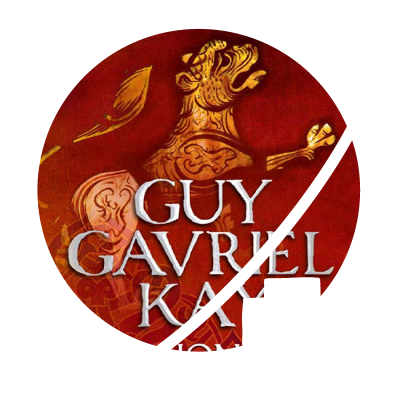- Book written by Guy Gavriel Kay
- Published May 1995
- Stand alone
In a low fantasy world mirroring religiously divided medieval Spain, three characters from different faiths and different kingdoms – a Kindath doctor, a Jaddite mercenary and an Asharite court poet and general find each other and forge bonds of love that are subsequently tested as the peninsula threatens to descend into the chaos. As the threat of holy war looms and their different allegiances start to slowly pull them apart, they are confronted with difficult choices about who they are and what they stand for.


I have said before that I dislike the idea that every fantasy story needs to be told in a trilogy. The Lions of Al-Rassan is a perfect showcase of how to tell a complex story that has it all – characters, politics, war, scheming, growth, you name it – in a single volume.
The trick, it appears, is to set your story in a low-fantasy world that presents an instantly recognisable image of a historical reality from our own world, and build from there. No steep learning curve, no info dumps – just emotional storytelling right from the prologue.
For a seasoned reader of fantasy, this book is almost like historical fiction – feeling closer to Ken Follet than to the likes of Tolkien. The parallels to the real world reconquista of Spain are very strong – from the inspiration for names to treatment of religion and even the world map, nothing in this book seeks to hide its source of inspiration. At the same time, the larger-than-life characters (and some supernatural elements) pull it just into the realm of fantasy. If you have a family member who likes historical fiction but never tried their hand at something speculative, this is a perfect book to bridge that gap.
What is more, this is the first book by Guy Gavriel Kay I read, and he definitely lives up to his reputation as a writer of beautiful poetic prose. There is something very satisfying in reading about a world that is not so different from ours, but where everything is decribed as just a little closer to its ideal form – the moon is always bright, the warrior-poets always gallant, the women always beautiful, the desert savages always stoically cruel. There is so much athmosphere to this book. There is a certain melancholy dripping from the pages that makes you feel for all the places swept up in the reconquista more than a hundred pages of worldbuilding might have.
The worldbuilding is one element of this book that is perhaps a little thin – but Kay doesn’t pretend at much either. Nor does the book present very original ideas or particularly surprising twists – but it does not attempt to. The only point where I feel this books really falls a bit short at times is in its pacing in the middle section – there are a couple of places where it gets bogged down in very athmospheric scenes or settings that do little to move the story forward (a surprise, in a way, given how much story Kay manages to fold into this single book). The religious themes in this book – mirroring the historical relationships of the three great monotheistic traditions – are a bit heavy-handed at times, and that leads to a final point of criticisim that I didn’t want to leave unmentioned, though I realise it’s a pet peeve of mine that others won’t be bothered by. Although I feel Kay created a plausible pseudo-histrical setting, inexplicably none of his main characters share the bigotry and medieval mindset of the others inhabiting the world. That means his commentary on the futility of religious wars is far less poignant than it could have been.
Overall, though, I am very impressed by The Lions of Al-Rassan because it is so different in style from the fantasy books that I typically like, but it struck a note with me that makes me want to go pick up another of Kay’s novels. I reckon there are more emotionally focussed readers out there who are going to absolutely love this to bits, and especially because it has only one volume, I would happily recommend The Lions of Al-Rassan to all but the most plot or action focussed of readers.





